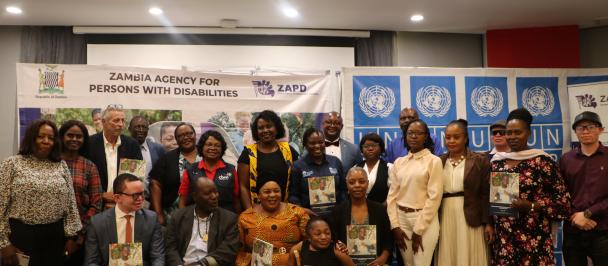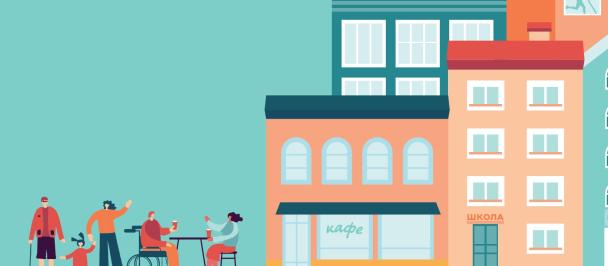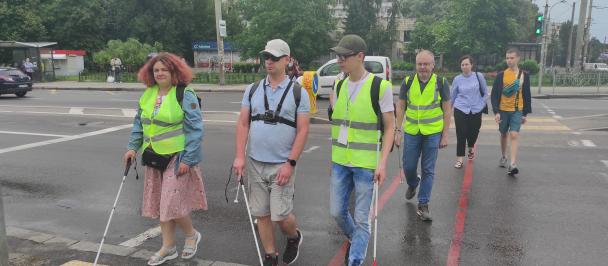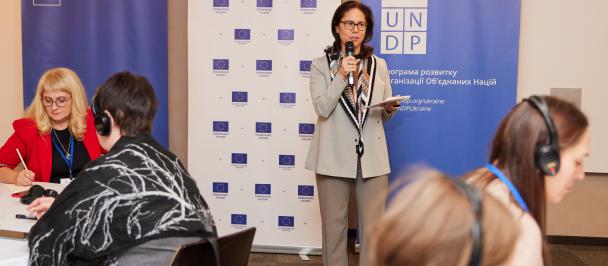“Community participation – equality in society”: “Knowledge and skills for better community inclusion acquired by people with intellectual disabilities cannot be taken away from them”
December 1, 2022
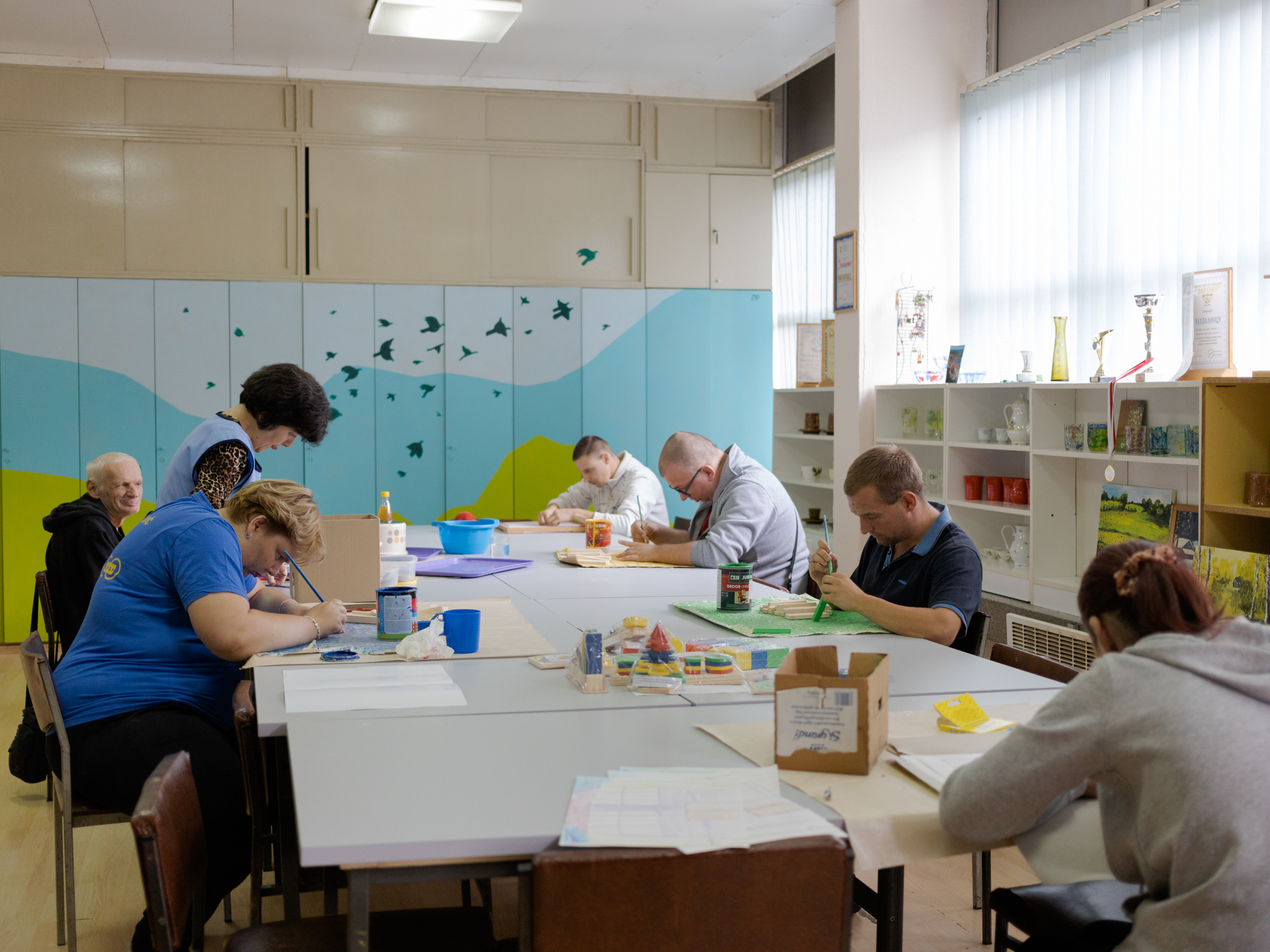
In order to achieve greater autonomy of persons with intellectual disabilities through the development of life skills, psychological empowerment and creative work and contribute to the improvement of their social position in the local community, and to educate parents about the importance of this approach, the Association for Assistance to Mentally Underdeveloped Persons of Banja Luka has created the project "Community Participation – Equality in Society" and received support through the program "Enable and Embrace Beneficial Civil Society Environment" (EMBRACE) financed by the Government of the Kingdom of Norway and implemented by the United Nations Development Program (UNDP).
The workshops covered topics such as self-care, hygiene, care of the living space, money handling, care of clothes and footwear, independent preparation of simple meals, dishwashing and other skills needed in everyday life. At psychological empowerment workshops we addressed non-violent communication, protection from dangers on the Internet, tolerance, gender education and raising self-confidence, and at creative workshops, users had the opportunity to learn about woodwork, wool processing and jewelry making.
“Beneficiaries were satisfied with this concept because they were acquiring the skills they needed in everyday life, and most of them did not have the opportunity to work at home due to their parents' overprotection,” said Gordana Ilić, the coordinator of the project “Community Participation – Equality in Society”.
The project also included social work students, so that after completing their studies they would become social workers who would understand and be able to respond to the needs of people with intellectual disabilities. Ms. Gordana Ilić especially underlined the lasting values that will remain after the completion of the project:
“All the workshops that the beneficiaries went through, enabled them to acquire knowledge and skills that no one can take away from them, and that still need to be worked on in order to get the routine. We as a team were organized so that we got the most out of them in a given time, while the students expanded their knowledge and were further sensitized. We explained to the community how important and why it is important for people with intellectual disabilities to be independent, and we got partners among parents in this - providing them with the opportunity to perform the agreed activities at home,” she concluded.
Ms. Ružica Miščević, whose daughter is a beneficiary of the association that went through workshops within the project, said that she noticed significant progress at home - “she has learned to live more independently, feels useful and helps at home”:
“This project means a lot, to both me and her. They learn to live in the community, and how to be more independent when they remain alone, so that they can stay in the community in their apartments, and not end up in institutions. We get older, we leave, they have to have some support, but they also have to stay in their local community. So, it's very important that they've learned that they can maintain their own hygiene, that they can prepare their own food, maintain their own space, and how to navigate communities and stores. They also became more independent in the kitchen, preparing food, serving a table, behaving in the street and in the society, learning how to behave in some difficult situations and from whom and how to ask for help. She has made friends, and she has her own place to stay, so I am very pleased”, said Ms. Ružica Miščević.
One of the beneficiaries, Ms. Nina Simić is also satisfied and said that the acquired skills would be helpful in her further life:
“Today or tomorrow, when we become independent, regardless of the fact that we always have someone in our family, it is useful that we can manage on our own and that we do not need much help. Through the workshops we learned how to be independent, to know how to go to the store by ourselves, to go by ourselves and pay the bills and that no one can cheat us out of the change. At one workshop, we also learned the proper serving of breakfast or lunch when our guests arrive,” said Ms. Nina Simić in a statement for a local TV station, and showed communication skills, as well as other beneficiaries who spoke about what they learned at workshops without fear or jitters.
The defectologist, Ms. Svetlana Ljevar-Lučić, head of life skills workshops, said that the project "recognized the needs of this population and contributed to the development of their skills, which are also a legacy for their future":
"We implemented a total of 20 life skills workshops in which we tried to improve their functioning in everyday life, while maintaining the existing knowledge and skills. I am satisfied with the results achieved in a short period of time and the given conditions. The desire of users to learn and work, for the purpose of their independence and raising self-confidence and confidence in their own possibilities. We realized activities that are very applicable and lifelike and that are of great importance to every person, so I felt that I was doing something very useful and positive," she said, adding that two workshops were held with parents on the importance of adaptive skills and independence of their children, as well as the role of parents in the process. On the other hand when working with students topics such as the characteristics of functioning of persons with intellectual disabilities and deinstitutionalization were addressed.
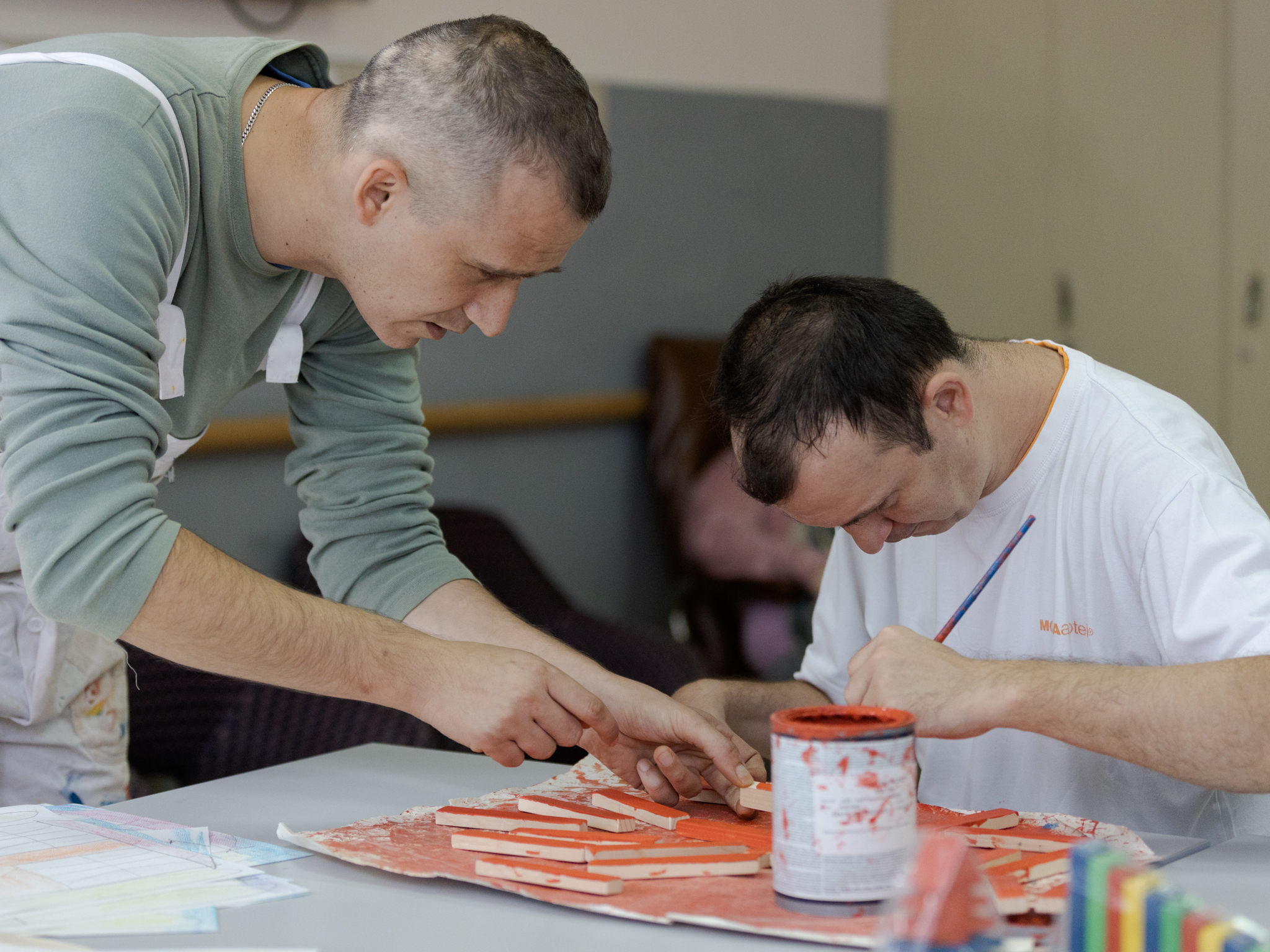
Within the project "Community Participation – Equality in Society", psychologist, Mr. Slobodan Kršić, designed and implemented 20 psychosocial support workshops, and two educational workshops for their parents and students as workshop manager:
"Through many years of work with this population, I have gone through various activities, but this project is really innovative in our area because it is going towards training for their independent life, and so my personal satisfaction is greater. The beneficiaries themselves have also shown directly and indirectly that they are pleased to participate. Each one of them participated in activities that help them acquire knowledge, skills, but also, which is often overlooked, self-confidence and self-control, in accordance with their capabilities," pointed out Mr. Slobodan Kršić, underlining the benefit that all beneficiaries gained through their participation:
"Everything we have done raises the level of their independence and enables a more adequate and socially acceptable functioning, which consequently provides the possibility of their fuller integration into community as a final goal. It is important to note that such work must be continuous because they need more frequent repetition and maintenance of existing knowledge," he concluded.
Ms. Gordana Ilić hopes that further support for the started activities will not be lacking, encouraged by the statements of the representatives of the competent institutions after one of the round tables:
"They emphasized that they support projects that imply programs for the emancipation of persons with intellectual disabilities and their lives with as little support as possible in the community. By investing in them, we are doing prevention of institutionalization, which is very expensive and inhumane, but we are also raising the quality of their lives."
The project "Enable and Embrace Beneficial Civil Society Environment" (EMBRACE) was financed by the Government of the Kingdom of Norway in the amount of USD 880,000 and implemented by the United Nations Development Program (UNDP), with the aim of strengthening the capacity of civil society organizations (CSOs) to improve the quality of services provided to citizens and citizens in local communities.

 Locations
Locations




